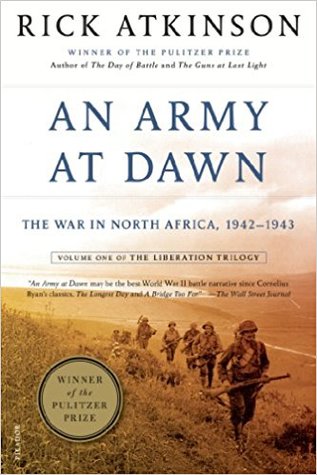More on this book
Community
Kindle Notes & Highlights
Read between
March 15 - March 17, 2019
From a distance of sixty years, we can see that North Africa was a pivot point in American history, the place where the United States began to act like a great power—militarily, diplomatically, strategically, tactically.
North Africa is where the Axis enemy forever lost the initiative in World War II. It is where Great Britain slipped into the role of junior partner in the Anglo-American alliance, and where the United States first emerged as the dominant force it would remain into the next millennium.
is where the truth of William Tecumseh Sherman’s postulate on command was reaffirmed: “There is a soul to an army as well as to the individual man, and no general can accomplish the full work of his army unless he commands the soul of his men, as well as their bodies and legs.”
The brave and the virtuous appear throughout the North African campaign, to be sure, but so do the cowardly, the venal, and the foolish. The ugliness common in later campaigns also appears in North Africa: the murder and rape of civilians; the killing of prisoners; the falsification of body counts.
September 1, 1939, was the first day of a war that would last for 2,174 days, and it brought the first dead in a war that would claim an average of 27,600 lives every day, or 1,150 an hour, or 19 a minute, or one death every 3 seconds.
Within four weeks of the blitzkrieg attack on Poland by sixty German divisions, the lightning war had killed more than 100,000 Polish soldiers, and 25,000 civilians had perished in bombing attacks. Another 10,000 civilians—
France could keep her substantial fleet and an army of 120,000 men in North Africa by pledging to fight all invaders, particularly the British. To enforce the agreement, Germany would keep 1½ million French prisoners-of-war as collateral.
The last Regular Army cavalry regiment would slaughter its mounts to feed the starving garrison on Bataan in the Philippines, ending the cavalry era not with a bang but with a dinner bell.
Rear Admiral Henry Kent Hewitt


